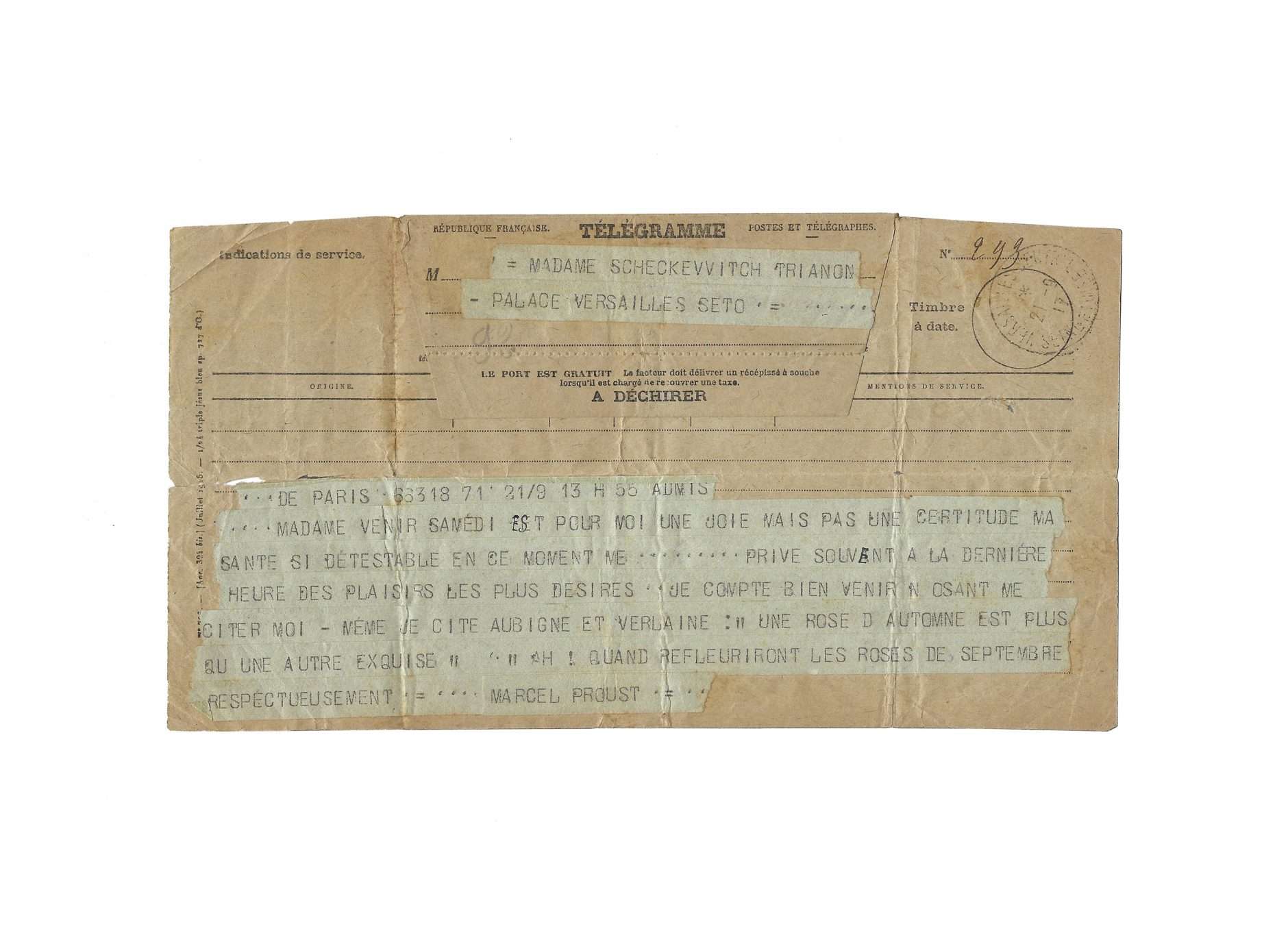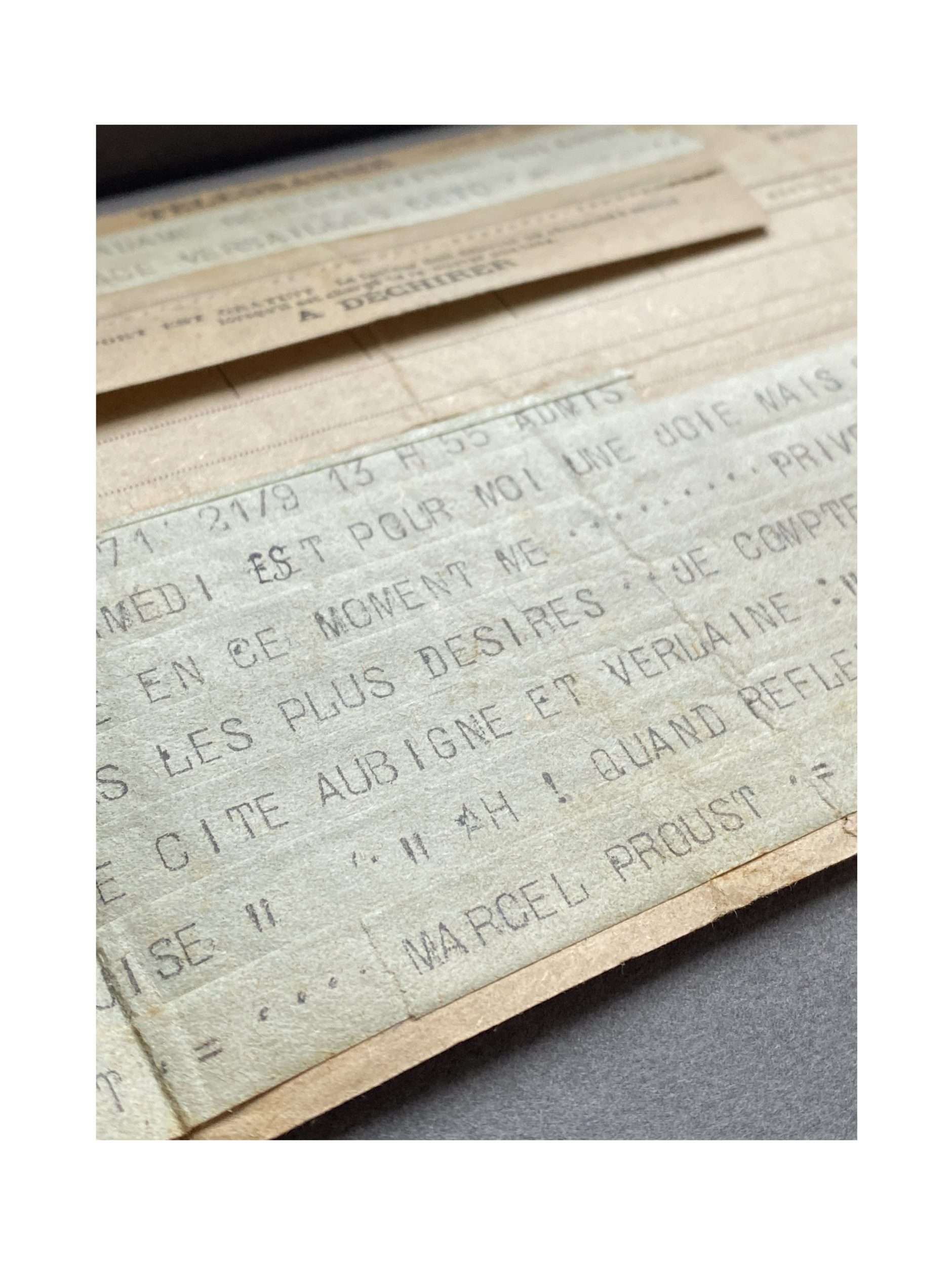PROUST, Marcel (1871-1922)
Telegram to Marie Scheikévitch
[Friday 21st September 1917], 1 p. in-8°
« My health, so detestable at this moment, often deprives me at the last hour of the most desired pleasures»
Fact sheet
PROUST, Marcel (1871-1922)
Telegram to Marie Scheikévitch
[Friday 21st September 1917], 1 p. in-8°
Telegram addressed to: « Madame Scheckevvitch [sic] Trianon Palace Versailles », postmark « Versailles 21-9 17 »
Slight tear on left margin (without affecting the text), some autograph corrections
Nice telegram in which Proust responds to an invitation to go to the Trianon Palace in Versailles – He ends his message by quoting poets Agrippa d’Aubigné and Verlaine
« Madame,
Venir samedi est pour moi une joie mais pas une certitude [.] Ma santé si détestable en ce moment me prive souvent à la dernière heure des plaisirs les plus désirés. [.] Je compte bien venir [.] N’osant me citer moi-même je cite Aubigné et Verlaine
Une rose d’automne est plus qu’une autre exquise(1)
Ah ! Quand refleuriront les roses de septembre(2)
Respectueusement
Marcel Proust »
Did Proust attend the invitation of Marie Sheikevich?
As Philip Kolb reports, she had to rely on this telegram to recall a visit in September 1917 that Proust made to her at the Trianon Palace in Versailles. She evokes it as follows:
“I see him again, on this September evening arriving at the Trianon-Palace, in the automobile of General Zankevich […] » (Souvenirs d’un temps disparu, Plon, p. 156).
It seems, however, that Proust was unable to travel to Versailles at that time. There is nothing in his letters of the end of September that indicate that Proust actually made his way to Versailles. Moreover, he asked to Montesquiou to come and walk with him “in the countryside, which I have not seen for so many years […]” (letter of following 10th October).
Eventually, General Zankévitch brought Proust to Versailles in his automobile in April 1918 (unpublished letter to Guiche).
1- Agrippa d’Aubigné, Les Tragiques, livre IV, Les Feux, vers 1233
2- Paul Verlaine, Sagesse, IIIe partie, III, dernier vers du sonnet
Proust’s telegrams are rather uncommon
References:
Lettres à Madame Scheikévitch (1928), p. 85
Correspondance, Kolb, t. XVI, n°115
Marcel Proust II – Biographie, Jean-Yves Tadié, Folio, pp. 391-392



